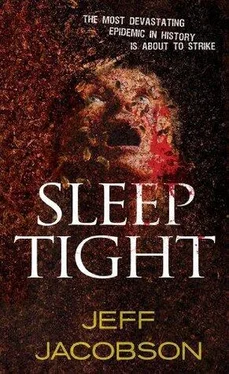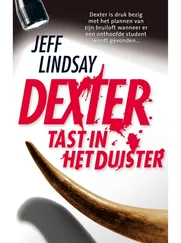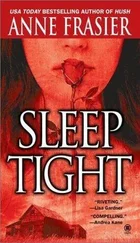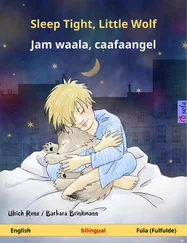During these first few weeks of true warmth, the city’s denizens peel off layers of clothing, like snakes shedding their skin, and emerge from the darkness of winter hibernation with pale skin and an insatiable lust for the sun. A collective sigh of relief can be heard, and just like the plants and trees, the abandoned sidewalks erupt with life.
Louis W. Holtzfelder liked to take a midmorning break from his tax law office in the upper floors of 845 North Michigan and stroll across the bridge to the Starbucks on the other side of the Chicago River in the Trib building. In the winter, he parked in the heated underground garage, and rode the elevator up to his office. Same thing in the deep summer. There was no point in suffering the extremes of Chicago’s weather like some common laborer when his status afforded him twenty-four-hour climate control.
When the weather was mild, a Goldilocks blend of spring warmth and refreshing breezes without summer’s oppressive heat, he gladly left the sedate hum of fluorescent lights tastefully hidden behind soothing smoked glass, and ventured onto Michigan Avenue on foot. No doubt the attire of the office girls that suddenly appeared on streets had something to do with this decision, but he would never admit this, not even to himself. Still, he couldn’t help but notice the annual baring of shocking amounts of female flesh and he tried not to stare as he made his way through corporate workers and throngs of tourists to get his soy chai latte espresso.
Sometimes he would even take the time to sit on one of the benches along the river if the stench from the polluted water wasn’t too bad. Today, though, he needed to get back to the office as soon as possible. He shouldn’t have even left, because the temp’s lack of intelligence was staggering, but by eleven in the morning, Holtzfelder hadn’t been able to resist the sunlight and smells of tree blossoms and snatches of intoxicating, exotic perfume he occasionally could catch as he passed the girls on the street.
He was on his way back when he saw the homeless woman, approaching the bridge on the far side. At least, he thought it was a woman. She was black, of course.
He’d seen her before, shambling along the sidewalks like some great sluggish buffalo, pushing a shopping cart. He had had the misfortune of having to wait for her as she took hours to cross in front of his Jaguar. Holtzfelder believed there should be some kind of ordinance that banned the homeless from the city. Or at least kept them in the South Loop, well away from where the decent people worked. This was the price he paid for venturing onto public streets on such a beautiful day he reasoned, and tried not to let her presence interfere with his pleasant stroll.
She stopped at the edge of the bridge, nearly completely blocking the sidewalk with her overloaded cart. Tourists kept a wide berth, pushing their children out in traffic on the Michigan Avenue Bridge to shield their delicate sensibilities from an honest-to-God street vagrant.
No matter the weather, she wore layers upon layers of tattered, rotten scavenged clothing. A pair of oversized black Chuck Taylor shoes could be seen under the frayed plaid bell-bottoms. Holtzfelder knew the brand because his son had begged for a pair for his thirteenth birthday many years ago. Holtzfelder had refused. No son of his was ever going to look “punk.”
Most curious of all though, the homeless woman wore some kind of plastic Halloween novelty Viking helmet. The cartoonish horns pushed their way through holes in the brown hood attached to a brown cloak that draped her bulky frame. A circle of graying, waxy hair encircled a dark face with the texture of an old walnut. She could have been anywhere from a beaten forty-year-old to a still spry eighty-year-old.
Holtzfelder just knew she was going to accost him as he drew closer. He curled his free hand into a fist and focused his gaze firmly on the blinking DON’T WALK sign on the far corner. The lights were not going to help him. He would be stuck on the corner while the traffic sped along Upper Wacker and he feared that he would be exposed and vulnerable. Well, that was ridiculous. He was Louis W. Holtzfelder; some of his clients were among the most important people in the city. He set his jaw.
He was all ready to give her a piece of his mind when he got within five feet, but she wasn’t even looking at him. Instead, she was intently watching the promenade down by the water. Unable to stop himself, as if he was passing a gruesome traffic accident, he followed her gaze.
Down on the walkway that ran along the river, between the wrought-iron benches and cement flowerbeds, was a rat. Holtzfelder’s lips pursed. Rats had no more a right to be in the city than the homeless did. Still, it wasn’t natural to see a rat out in the direct sunlight, moving so slowly.
In fact, the rat wasn’t acting right at all. It stumbled from the shadows, staggering slightly as if drunk. He needed his glasses, because there seemed to be something wrong with the rat’s hair. It looked almost as if it was crumbling away, leaving a trail of dirt behind it. It hobbled to the edge of the river, and simply fell in. There was no jump, no grace, nothing natural. It looked like it was dying.
The homeless woman spoke, so suddenly and so close that Holtzfelder jumped. “Rats be sicker than a motherfucker. All over the place. This town, it be in all kindsa trouble. You watch.”
Holtzfelder edged around her and the cart, with no idea of what to say. The lights changed, and he hurried across the street, leaving the woman still staring at the empty space where the rat had fallen.
CHAPTER 14
8:45 PM
April 17
Those first months on the job, Tommy learned the habits of rattus norvegicus . Don would lead him down into the labyrinth of tunnels and subways and fissures, leaving behind the vicious winter winds that howled through the streets above. Tommy found it fascinating. He felt privileged somehow, exploring this forbidden perspective, as if buried deep beneath the skyscrapers where the city anchored itself into the earth, he could actually see the hidden corners and abrupt angles where the city crashed against itself, grinding the cement, buckling the sidewalks, cracking the bricks.
They would start each night by hitting the alleys behind restaurants and bars, restocking bait and checking holes. Then they’d creep into ancient basements or slip into abandoned buildings, carrying long poles with loops at the ends, swaddled in heavy leather. Tommy began to understand and follow the maze of tunnels under the Loop. They could enter the subway system at Harrison and climb out at Washington avoiding the train lines altogether.
Tommy could squirm into places where Don could only shine a flashlight. Thanks to his relatively small size and strength that hadn’t faded since his glory days as an energetic human vacuum cleaner shortstop on the De La Salle Meteors, Don had come to rely on Tommy to crawl into holes and cracks, baiting and catching rats in places that had been previously inaccessible. They’d leave bait, and days later, return to collect dead rats to keep the people that read the paperwork happy. Along with his new boots, Tommy carried his high school aluminum bat, a Louisville Slugger Exogrid, in a sling across his back, in case any of the rats weren’t quite dead.
The last stop of the night was always the incinerators on the West Side.
The work was filthy, choking, and dangerous. Still, Tommy enjoyed it, relished the rush as adrenaline pulsed through his body as he crawled through the dust, always facing the possibility of running into rats ready to defend their territory. It forced him to concentrate and kept his mind off of Kimmy and Grace, at least for those hours underground. Then, when they stopped at the bar after dropping off the dead rats at the end of the night, he felt as if he’d earned a beer, and could relax.
Читать дальше












